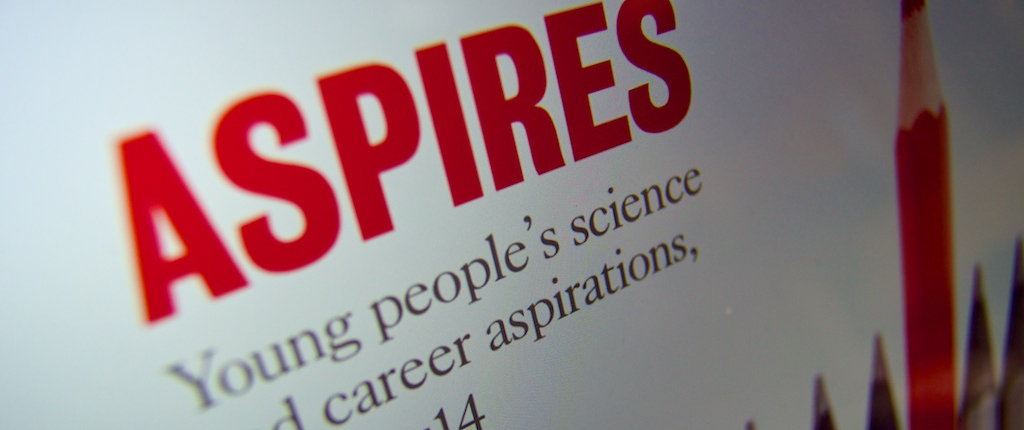One of the key reports upon which NUSTEM aims to build is ASPIRES, a five-year study funded by the Economic and Social Research Council.
Conducted by King’s College, London, the project:
…sought to shed new light on our understanding of how young people’s aspirations develop over this 10-14 age period, exploring in particular what influences the likelihood of a young person aspiring to a science-related career.
The final report spans a few dozen pages and is highly readable, and it challenges several assumptions. The headline findings are:
•Most young people have high aspirations – just not for science.
•Negative views of school science and scientists are NOT the problem.
•Family ‘science capital’ is key.
•Most students and families are not aware of where science can lead.
•The brainy image of scientists and science careers puts many young people off.
•The (white) male, middle-class image of science careers remains a problem.
As you’d expect, there’s considerable detail and nuance behind each of those findings, and for the implications and recommendations the ASPIRES team articulate. NUSTEM’s emphasis on interaction from early years and primary onwards, our enthusiasm for embedding careers messages throughout our work, and our inclusion of family interactions in our plans are all informed by ASPIRES.
The ASPIRES team are continuing their study, exploring the older 14-19 age group, with ASPIRES2.
ASPIRES Report
Read the full report by clicking the link above.



